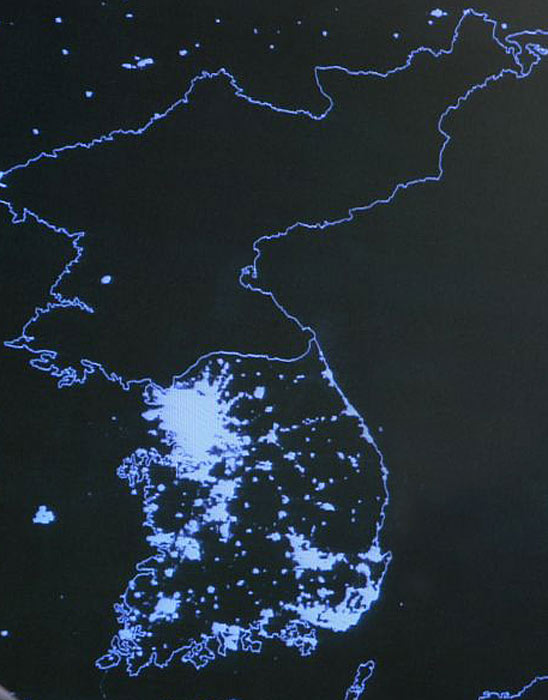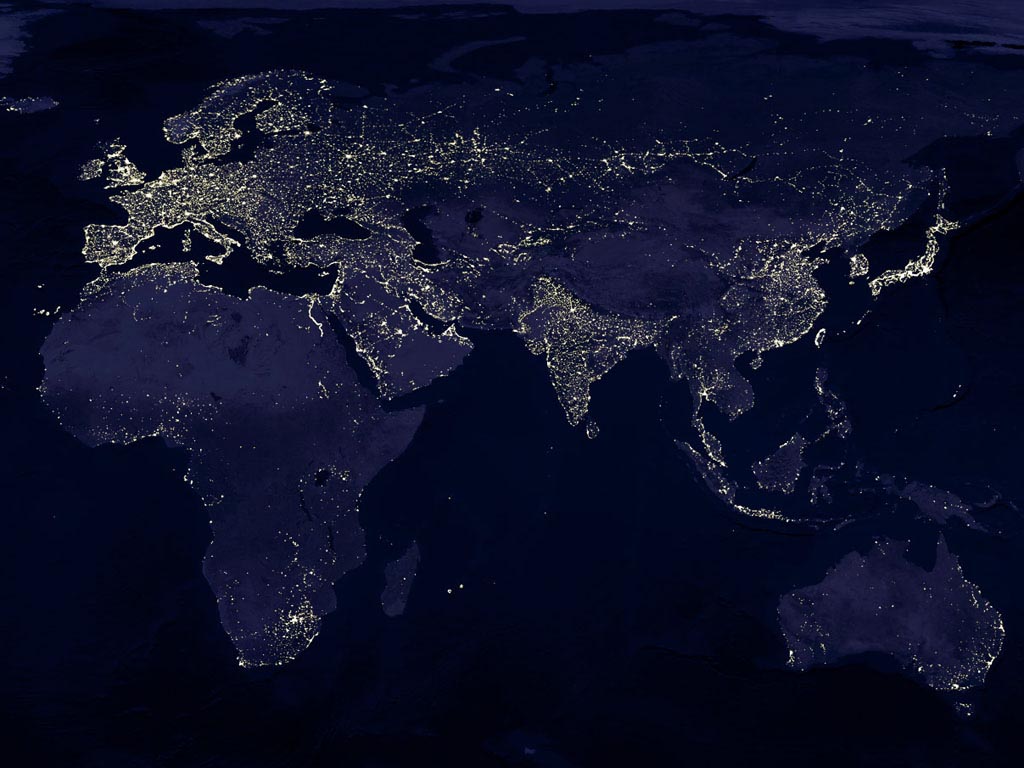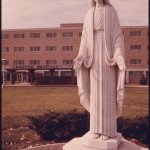Satellite photograph of the two Korea’s at night. On the plus side, I guess, the carbon footprint of North Korea is very low, yes? Or “black out” curtains and strict adherence to “war-time” black-out conditions are mandatory. What are the odds that their new ruling god will unleash his peoples’ creativity and bring them out of the “dark ages?”
And a serious question for all the distributists out there. Are utilities considered “big businesses,” as they are in the Western market economy? How are these infrastructure businesses considered under “the third way?”
And for some perspective, here’s the rest of that side of the world.
Is North Korea the land that time forgot? Or is it already a distributist’s paradise? Writing an article entitled Nine Underground Economies and Greece, Justin Rohrlich notes this about North Korea,
The North Korean government has reportedly earned itself hard currency over the years by engaging in drug dealing, weapons manufacturing, and top-drawer counterfeiting. But the proletariat makes ends meet in decidedly more pedestrian ways.
“A North Korean family needs 90,000-100,000 North Korean won for living costs per month, but workers at state-run factories or enterprises earn a mere 2,000-8,000 won,” one South Korean official told the Chosun Ilbo newspaper this fall. “So North Koreans have no choice but to become market traders, cottage industrialists or transport entrepreneurs to make up for shortages.”
With the ration system in tatters, North Korean citizens survive by moonlighting from their state duties as private tutors, carpenters, and taxi drivers.
“Ordinary North Koreans have become so dependent on the private economy that they get 80-90% of daily necessities and 60-70% of food from the markets,” the official said.
Hmmm. It’s always interesting to know what the “black markets” are up to.













